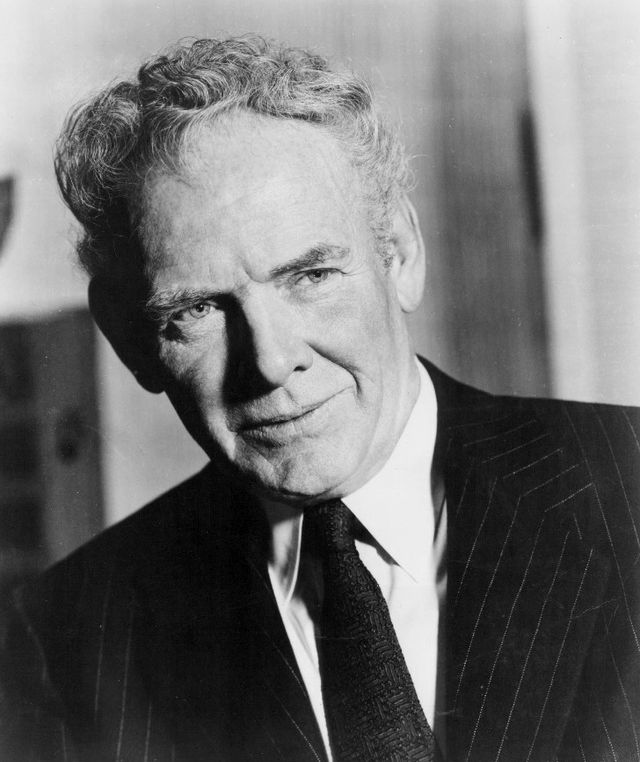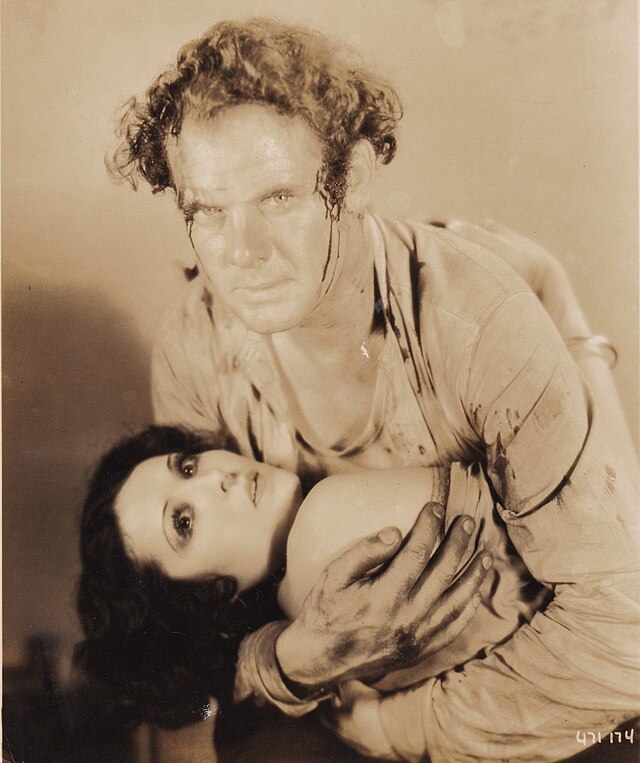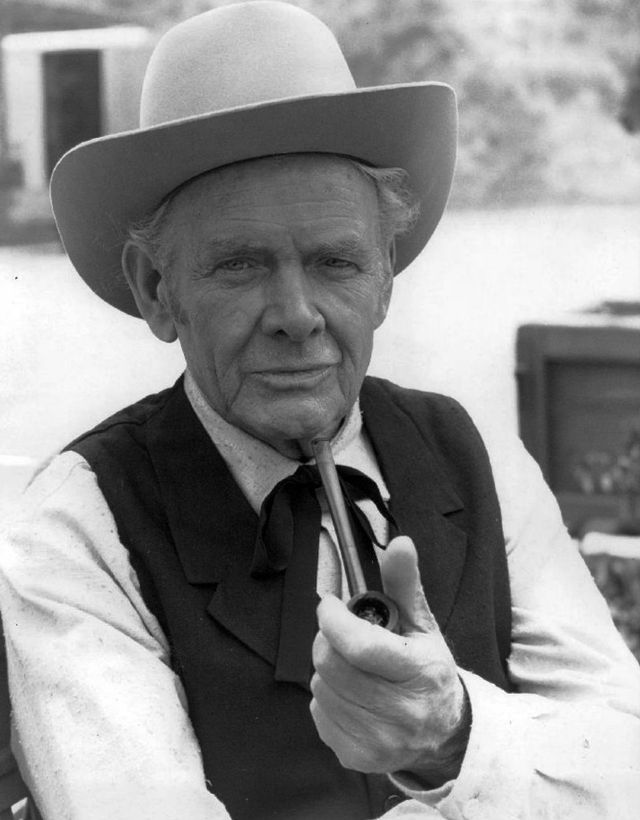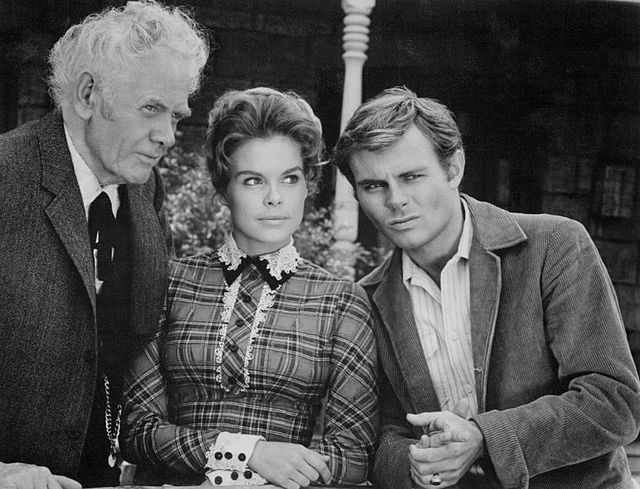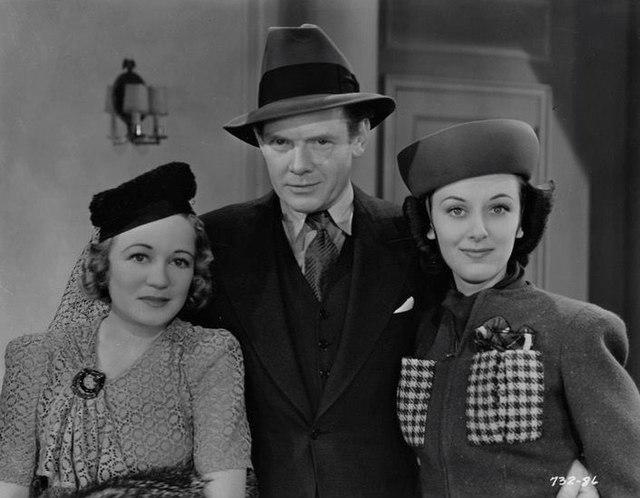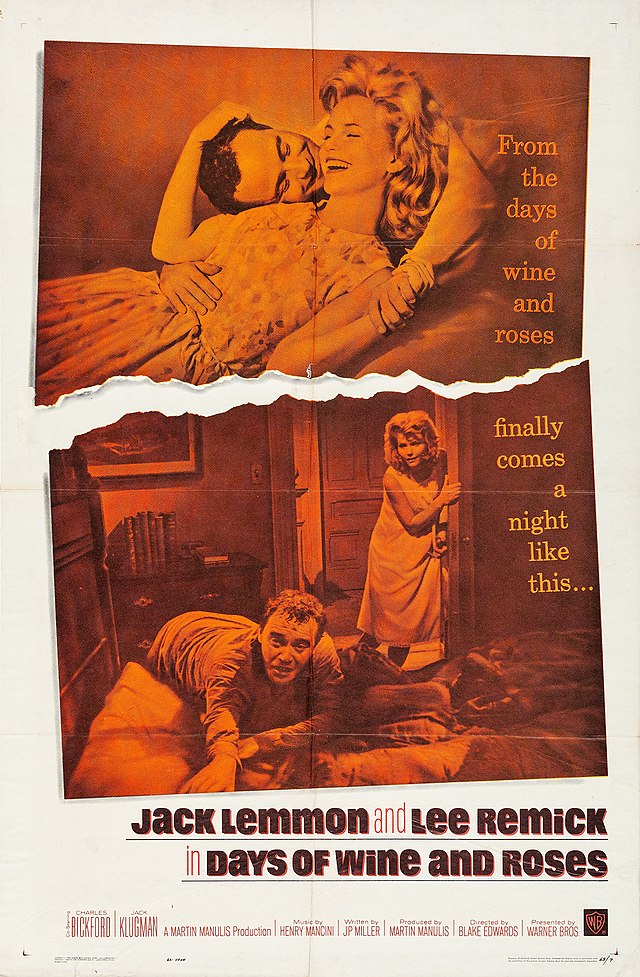Charles Bickford
back| Full Name | Charles Ambrose Bickford |
| Stage Name | Charles Bickford |
| Born | January 1, 1891 |
| Birthplace | Cambridge, Massachusetts, USA |
| Died | November 9, 1967 |
| Buried | Forest Lawn Memorial Park, Glendale, California, USA |
| Married to | Beatrice Ursula Allen (m. 1916) |
| Children | Rex Bickford and Doris Bickford |
| Notable films | Of Mice and Men (1939) - The Song of Bernadette (1943) - Duel in the Sun (1946) - A Star is Born (1954) - The Big Country (1958) |
Charles Bickford
The Hollywood Tough Guy
Charles Bickford (1891–1967) was a respected American character actor known for his rugged presence and deep emotional resonance. Born in Cambridge, Massachusetts, Bickford’s early career included varied jobs before he turned to acting.
He gained recognition on Broadway before transitioning to Hollywood in the 1920s. A severe throat injury in 1935 altered his voice, shifting him from leading roles to powerful character parts. Bickford earned three Academy Award nominations for The Song of Bernadette (1943), The Farmer's Daughter (1947), and Johnny Belinda (1948). Known for his commanding authority and complex portrayals, he became a staple in Westerns, dramas, and war films.
Related
Charles Bickford (1891 – 1967)
Biography and Movie Career
Charles Ambrose Bickford was a prominent American character actor known for his rugged and authoritative screen presence. Born on January 1, 1891, in Cambridge, Massachusetts, Bickford was the fifth of seven children in a working-class family. From an early age, he displayed a rebellious and adventurous spirit, which led him to various careers before entering acting. He initially studied engineering at MIT but left to pursue a variety of jobs, including lumberjack, coal miner, and boxer.
Bickford’s entry into acting was somewhat accidental. After working in the vaudeville circuit, he joined a touring theatrical company, and his natural talent quickly became apparent. His Broadway debut came in 1919 in the play Outside Looking In, where he gained recognition for his powerful performances.
His film career began in the 1920s, but it wasn’t until the 1930s that Bickford became well-known in Hollywood. Despite starting as a leading man, an on-set accident in 1935 during the filming of East of Java severely injured his throat, which changed the timbre of his voice and shifted his career towards character roles. This change turned out to be fortuitous, as Bickford excelled as a strong, authoritative figure in numerous films.
Bickford was often cast as stern but fair authority figures, earning three Academy Award nominations for Best Supporting Actor in The Song of Bernadette (1943), The Farmer's Daughter (1947), and Johnny Belinda (1948). His work in Duel in the Sun (1946) and A Star is Born (1954) also garnered significant acclaim.
Aside from his film work, Bickford also appeared on television, most notably as ranch owner John Grainger on the popular TV series The Virginian from 1964 until his death.
Bickford married Beatrice Ursula Allen in 1916, and they had two children, Rex and Doris. He was known to be a family man with a strong work ethic. Despite his often gruff screen persona, those who knew him personally described him as kind and warm-hearted.
Charles Bickford passed away on November 9, 1967, from pneumonia and a blood infection. He was buried at Forest Lawn Memorial Park in Glendale, California. Bickford left behind a legacy as one of Hollywood’s most reliable and respected character actors, known for bringing depth and gravitas to every role he played.
A Video Tribute to Charles Bickford:
Commanding Acting Style of Charles Bickford:
Charles Bickford’s acting style was marked by a distinctive blend of rugged authenticity, commanding presence, and deep emotional resonance. His approach to acting was grounded in a realism that made his characters believable, often embodying the qualities of strength, integrity, and moral complexity.
Commanding Presence and Physicality
Bickford had a physically imposing figure, which naturally lent itself to roles of authority, whether as a stern father, a powerful landowner, or a tough lawman. His physicality wasn’t just about size; it was about how he carried himself. His posture, the way he inhabited space, and his movements conveyed an unspoken dominance that commanded attention without needing to raise his voice. This presence made him a natural choice for roles that required a figure of authority, whether benevolent or malevolent.
Gravitas and Emotional Depth
Bickford brought a deep sense of gravitas to his roles. His voice, which was altered by an injury in 1935, had a rough, gravelly tone that added layers of complexity to his characters. This unique vocal quality helped him portray men who were tough and weathered by life’s hardships. Yet, despite his often gruff exterior, Bickford had an extraordinary ability to convey vulnerability and inner turmoil, especially in roles where his characters faced moral dilemmas or personal loss. This emotional depth allowed him to play complex characters who were more than just stern or tough—they were human, with fears, regrets, and unspoken emotions simmering beneath the surface.
Realism and Naturalism
Bickford’s performances were rooted in a naturalistic style that made his characters relatable and real. He didn’t rely on theatrical flourishes or overt dramatics; instead, he brought an understated intensity to his roles. This naturalism made his characters feel grounded, whether he was playing a Western rancher, a military leader, or a small-town doctor. His acting style was never about stealing the scene but about serving the story and his character’s place within it. This selflessness in his approach often elevated the performances of those around him, contributing to the overall authenticity of the films he was in.
Versatility in Character Portrayal
While Bickford was often cast in roles that played to his strengths as a stern, authoritative figure, he also demonstrated considerable range throughout his career. He could play the villain with as much conviction as he played the hero, often blurring the lines between good and evil. In films like Johnny Belinda, where he played a stern father struggling to connect with his disabled daughter, or Duel in the Sun, where his character was a powerful but morally ambiguous patriarch, Bickford showcased his ability to navigate the complexities of human nature. He excelled in roles where the character’s morality was not black and white but shaded with contradictions and internal conflicts.
Subtlety and Restraint
One of the hallmarks of Bickford’s style was his use of subtlety and restraint. He understood the power of a quiet moment, the significance of a glance, or the weight of a simple gesture. This subtlety made his performances rich with subtext, allowing audiences to read between the lines and connect with his characters on a deeper level. He knew when to let silence speak louder than words, and this restraint often made his portrayals more impactful and enduring.
Consistency and Professionalism
Throughout his career, Bickford was known for his professionalism and consistency. He brought the same level of commitment and authenticity to every role, regardless of the size or significance of the part. This reliability made him a favorite among directors and producers, who knew they could count on him to deliver a powerful performance every time. His dedication to his craft was evident in the quality of his work, which remained high throughout his long career.
In summary, Charles Bickford’s acting style was a blend of rugged physicality, emotional depth, and naturalism, marked by a commanding presence and a profound understanding of the human condition. His ability to convey complex characters with subtlety and restraint made him one of Hollywood’s most respected and enduring character actors.
Awards and Recognition:
Academy Award Nominations:
Charles Bickford received three Academy Award nominations, all in the category of Best Supporting Actor:
- 1943: "The Song of Bernadette"
Role: Father Peyramale
Synopsis: Bickford played the supportive yet initially skeptical priest who comes to believe in the visions of Bernadette Soubirous, a young girl who sees the Virgin Mary in Lourdes, France.
- 1947: "The Farmer’s Daughter"
Role: Clancy
Synopsis: Bickford portrayed Clancy, a wise and principled Swedish-American farmer who plays a key role in his daughter’s political and personal journey. His performance was noted for its warmth and moral authority.
- 1948: "Johnny Belinda"
Role: Black MacDonald
Synopsis: Bickford was nominated for his portrayal of Black MacDonald, a stern and emotionally distant father to the deaf-mute girl, Belinda. His character undergoes a transformation as he learns to understand and support his daughter.
Other Recognitions:
- Star on the Hollywood Walk of Fame:
Location: 6780 Hollywood Boulevard, Los Angeles, California.
Awarded: February 8, 1960
Category: Motion Pictures
Recognition: Charles Bickford was honored with a star on the Hollywood Walk of Fame, which acknowledges his contributions to the film industry and his enduring legacy as a prominent character actor.
Industry Recognition and Legacy:
While Bickford's formal award wins were limited, his consistent performances and reputation as a reliable, versatile actor earned him considerable respect within the industry. Directors and producers frequently cast him in key supporting roles, knowing he would deliver a powerful performance. His work on television, particularly in "The Virginian," further cemented his status as a beloved figure in both film and television.
Posthumous Recognition:
After his death, Bickford’s contributions to cinema were acknowledged by film historians and critics who praised his ability to bring depth and complexity to his roles. His work continues to be appreciated by classic film enthusiasts and scholars who study the Golden Age of Hollywood.
Personal Quotes by Charles Bickford:
· On his approach to acting:
“I’ve played many roles where I have been tough and I’ve played many parts where I have been gentle, but I’ve always tried to make my characters believable, no matter who they were.”
· On the changing nature of Hollywood:
“Hollywood isn’t what it used to be, and it never will be again. There was a time when it was a place of dreams and creativity, but now it’s more about business than art.”
· On his career and life choices:
“I’ve always believed that if you can’t do something with conviction, then it’s not worth doing at all. That’s true in acting, and it’s true in life.”
· Reflecting on the impact of his injury:
“When I lost my voice, I thought I’d lost my career too. But in the end, it made me a better actor. It forced me to rely on more than just words—to convey emotion with every part of me.”
· On being a character actor:
“Being a character actor means you’re not always in the spotlight, but you’re the backbone of the film. You’re there to support the story, to make it real, and that’s something I take great pride in.”
· On his commitment to his roles:
“I’ve never taken a part that I didn’t believe in. If I’m going to invest myself in a character, then it has to mean something. Otherwise, why bother?”
What did Others Say about Charles Bickford:
Directors and Producers:
- Cecil B. DeMille (Director):
Remark: “Charles Bickford brought a sense of authority and strength to every role he played. He had a way of commanding the screen without overshadowing others, a rare quality that made him invaluable to any production.”
Context: DeMille worked with Bickford on several films, including The Plainsman and Reap the Wild Wind, and admired Bickford’s ability to elevate the material with his performances.
- Henry King (Director):
Remark: “Bickford was a director’s dream—always prepared, always professional, and always willing to go the extra mile to make a scene work. He understood the importance of the story and his role in telling it.”
Context: Henry King directed The Song of Bernadette, for which Bickford received an Oscar nomination. King appreciated Bickford’s dedication and contribution to the film’s success.
Co-stars:
- Jennifer Jones (Actress):
Remark: “Working with Charles was like taking a master class in acting. He was generous, insightful, and had an uncanny ability to connect with his fellow actors on a deep emotional level.”
Context: Jones starred alongside Bickford in The Song of Bernadette and spoke highly of his influence on her performance and their collaboration.
- Loretta Young (Actress):
Remark: “Charles had this incredible mix of toughness and tenderness. He could play the roughest characters, but there was always a humanity underneath that made his performances unforgettable.”
Context: Young and Bickford worked together on The Farmer’s Daughter, where his portrayal of Clancy earned him critical acclaim and an Oscar nomination.
- Gregory Peck (Actor):
Remark: “Charlie was a pro in every sense of the word. He had that rare ability to make every scene better, to lift up the people around him. It was an honor to share the screen with him.” - Context: Peck and Bickford appeared together in Duel in the Sun. Peck admired Bickford’s skill and the gravitas he brought to his roles.
Critics and Historians:
- Bosley Crowther (Film Critic, The New York Times):
Remark: “Charles Bickford was the quintessential character actor—versatile, reliable, and always compelling. His presence on screen was a guarantee of quality, and his performances were consistently among the highlights of any film he was in.”
Context: Crowther, a prominent film critic, frequently praised Bickford’s performances in his reviews, recognizing the actor’s contribution to the success of many classic films.
- David Shipman (Film Historian):
Remark: “Bickford’s ability to inhabit his roles so fully made him one of the most respected actors of his time. Whether playing a hero or a villain, he brought a complexity and authenticity that few could match.”
Context: Shipman, in his writings on classic Hollywood, often highlighted Bickford’s performances as examples of the power of character acting.
Peers and Friends:
- James Stewart (Actor):
Remark: “Charlie was a man of great integrity, both on and off the screen. He had this unshakable sense of what was right, and it showed in the way he lived his life and the roles he chose to play.”
Context: Stewart, who worked with Bickford and knew him personally, admired Bickford’s strong moral compass and the authenticity he brought to his roles.
- Barbara Stanwyck (Actress):
Remark: “There was no pretense with Charlie. What you saw was what you got—a true professional with a heart of gold. He was one of the greats, no question.”
Context: Stanwyck, who worked with Bickford, appreciated his straightforward nature and his dedication to his craft.
Movies featuring Charles Bickford:
- 1929: "South Sea Rose"
- Synopsis: This adventure film follows a young woman, played by Lenore Ulric, who escapes from her life of servitude on a South Sea island. Bickford plays Captain Briggs, a sea captain who becomes romantically involved with the protagonist.
- 1930: "Anna Christie"
- Synopsis: Greta Garbo stars in this adaptation of Eugene O’Neill's play. Bickford plays Matt Burke, a sailor who falls in love with a former prostitute, unaware of her past. The film explores themes of redemption and forgiveness.
- 1930: "Hell’s Island"
- Synopsis: In this early talkie, Bickford plays a soldier of fortune entangled in a romantic triangle on a tropical island. The film delves into themes of betrayal and love in a hostile environment.
- 1930: "The Sea Bat"
- Synopsis: Bickford stars as Reverend Sims in this adventure film set in a coastal Mexican village. The story revolves around a diver who seeks revenge after his brother's death, supposedly caused by a giant stingray known as the Sea Bat.
- 1930: "Dynamite"
- Synopsis: Directed by Cecil B. DeMille, this drama features Bickford as Hagon Derk, a miner sentenced to death. He agrees to marry a woman who will inherit money upon marriage, only for their lives to take unexpected turns.
- 1931: "River’s End"
- Synopsis: In this adventure film, Bickford plays a Mountie who assumes the identity of a man he has arrested. As he tries to clear his own name, he becomes romantically involved with a woman unaware of his true identity.
- 1931: "The Last Outlaw"
- Synopsis: Bickford portrays Dan Carver, a former outlaw trying to go straight, only to find himself back in a life of crime when his past catches up with him. The film is a Western dealing with themes of redemption.
- 1931: "The Squaw Man"
- Synopsis: This is a remake of the silent film classic, with Bickford as Cash Hawkins. The film follows an English nobleman who moves to the American West, marries a Native American woman, and faces the challenges of frontier life.
- 1931: "East of Borneo"
- Synopsis: A drama set in the jungles of Borneo, where Bickford plays Dr. Allan Randolph. The plot centers on a woman searching for her missing husband in the exotic and dangerous environment of Borneo.
- 1932: "Scandal for Sale"
- Synopsis: Bickford plays a tough newspaper editor who will do anything to get a sensational story. The film explores the ethical dilemmas faced by journalists in their pursuit of news.
- 1932: "Panama Flo"
- Synopsis: Bickford stars as Dan McTeague, a hardened adventurer who becomes involved with a woman fleeing from her past. The film combines romance and adventure in a tropical setting.
- 1933: "No Other Woman"
- Synopsis: A melodrama where Bickford plays Jim Stanley, a steelworker who strikes it rich. As he rises in society, he becomes estranged from his wife, leading to a dramatic conflict.
- 1933: "The Last Man"
- Synopsis: Bickford plays a boxer caught up in a life of crime. This drama explores the themes of fate and the consequences of one's choices.
- 1934: "This Day and Age"
- Synopsis: Directed by Cecil B. DeMille, this drama features Bickford as a ruthless gangster. The film follows a group of high school students who take the law into their own hands to fight crime in their community.
- 1934: "The Farmer Takes a Wife"
- Synopsis: Bickford plays Samson Weaver, a rugged boatman in this romantic comedy. The story revolves around a young man who wants to settle down as a farmer and the woman who loves him.
- 1934: "Little Miss Marker"
- Synopsis: A drama-comedy in which Bickford plays Big Steve Halloway, a bookie who takes care of a young girl left as collateral for a gambling debt. The film, starring Shirley Temple, explores themes of innocence and redemption.
- 1934: "All the King’s Horses"
- Synopsis: A musical comedy where Bickford plays Carl Winger. The film involves a plot where an American actor impersonates a European king, leading to a series of comedic situations.
- 1935: "East of Java"
- Synopsis: Bickford stars as Captain Ballister, a sea captain caught in a love triangle and a mutiny on a perilous voyage. This film is notable for the accident that injured Bickford's throat, altering his voice permanently.
- 1935: "Mutiny on the Bounty"
- Synopsis: Bickford has a supporting role as Captain William Bligh’s aide, who witnesses the famous mutiny led by Fletcher Christian (played by Clark Gable). The film is a classic adventure drama based on real events.
- 1936: "The Plainsman"
- Synopsis: Directed by Cecil B. DeMille, this Western features Bickford as Buffalo Bill Cody, a famous American frontiersman. The film dramatizes the story of Wild Bill Hickok and Calamity Jane during the westward expansion.
- 1936: "The Farmer in the Dell"
- Synopsis: Bickford plays a farmer whose life is turned upside down when he inherits a large sum of money. The film blends comedy with social commentary.
- 1937: "A Woman’s Man"
- Synopsis: A drama where Bickford plays a Hollywood director struggling with his personal and professional life. The film examines the challenges faced by those working in the film industry.
- 1937: "Song of the Saddle"
- Synopsis: A Western where Bickford plays a ruthless landowner who clashes with a young cowboy seeking justice for his father’s death. The film emphasizes themes of revenge and justice.
- 1937: "High, Wide, and Handsome"
- Synopsis: A musical Western set in the Pennsylvania oil fields, with Bickford playing a tough oilman trying to protect his interests. The film showcases the hardships and romance of life in the oil industry.
- 1938: "Valley of the Giants"
- Synopsis: Bickford stars as Howard Fallon, a timber baron who will stop at nothing to take control of a valuable forest. The film is an adventure drama set in the Redwood forests of California.
- 1938: "Girls on Probation"
- Synopsis: Bickford plays the father of a young woman who falls into trouble with the law. The film explores the challenges of the legal system and the path to redemption.
- 1939: "Of Mice and Men"
- Synopsis: Based on John Steinbeck's novel, Bickford plays the ranch owner, where much of the story unfolds. The film focuses on the tragic story of two displaced ranch workers in the Great Depression.
- 1940: "Our Town"
- Synopsis: In this adaptation of Thornton Wilder's play, Bickford plays Dr. Frank Gibbs, the father of the female protagonist. The film explores the small-town life and the passage of time in Grover's Corners, New Hampshire.
- 1940: "Queen of the Mob"
- Synopsis: Bickford stars as the police chief trying to take down a notorious female gangster. The film is a crime drama focusing on the battle between law enforcement and organized crime.
- 1941: "Blood and Sand"
- Synopsis: In this drama, Bickford plays a matador's father who warns his son about the dangers of fame and fortune. The film, set in Spain, explores the rise and fall of a young bullfighter.
- 1942: "Reap the Wild Wind"
- Synopsis: Directed by Cecil B. DeMille, this adventure film features Bickford as a ship's captain caught in a love triangle and battling pirates on the high seas. The film is set in the early 19th century along the Florida Keys.
- 1943: "The Song of Bernadette"
- Synopsis: Bickford plays Father Peyramale, a priest who initially doubts but later supports the young girl, Bernadette, who has visions of the Virgin Mary. The film is a religious drama based on true events in Lourdes, France.
- 1944: "Wing and a Prayer"
- Synopsis: Bickford plays a tough Navy captain during World War II who leads his crew through dangerous missions in the Pacific. The film is a war drama emphasizing the sacrifices of naval aviators.
- 1945: "Fallen Angel"
- Synopsis: In this film noir, Bickford plays a shrewd police officer investigating a murder. The film centers on a drifter involved in a love triangle and murder in a small town.
- 1946: "Duel in the Sun"
- Synopsis: Bickford stars as Senator McCanles, a powerful landowner whose family is torn apart by jealousy and violence. The film is a Western epic with strong romantic and tragic elements.
- 1947: "Brute Force"
- Synopsis: Bickford plays a wise and compassionate prison doctor in this gritty prison drama. The film focuses on a group of inmates planning a breakout while dealing with a sadistic guard.
- 1947: "The Farmer’s Daughter"
- Synopsis: Bickford plays a powerful Swedish-American farmer and father who influences his daughter’s rise in politics. The film is a romantic comedy-drama with strong political themes.
- 1948: "Johnny Belinda"
- Synopsis: Bickford portrays Black MacDonald, the stern father of a deaf-mute girl who is raped and gives birth to a child. The film is a powerful drama about injustice and the fight for dignity.
- 1949: "Whirlpool"
- Synopsis: Bickford plays a psychiatrist in this film noir about a woman suffering from amnesia and caught in a web of deceit. The film delves into themes of mental illness and manipulation.
- 1950: "Guilty of Treason"
- Synopsis: Bickford stars as Cardinal Mindszenty, a Hungarian priest imprisoned and tortured by the Communist regime. The film is a political drama based on true events during the Cold War.
- 1950: "The Big Fisherman"
- Synopsis: In this religious epic, Bickford plays Peter, one of Jesus Christ's apostles. The film explores the life and transformation of Peter as he becomes a leader of the early Christian church.
- 1950: "The Last Posse"
- Synopsis: A Western where Bickford plays the sheriff of a small town who leads a posse to capture outlaws. The film examines themes of justice and morality in the Old West.
- 1951: "Jim Thorpe – All-American"
- Synopsis: Bickford portrays Glenn S. "Pop" Warner, the coach of the legendary Native American athlete Jim Thorpe. The film is a biographical drama highlighting Thorpe's rise to fame and the challenges he faced.
- 1951: "The Raging Tide"
- Synopsis: Bickford plays a compassionate priest trying to save a young man from a life of crime. The film is a crime drama set in San Francisco.
- 1952: "The Last Musketeer"
- Synopsis: In this Western, Bickford plays a former lawman who comes out of retirement to settle a score with an old enemy. The film explores themes of loyalty and justice.
- 1953: "The Moon is Blue"
- Synopsis: A romantic comedy where Bickford plays the protective father of a young woman pursued by two suitors. The film was controversial for its frank discussion of sex and relationships.
- 1954: "A Star is Born"
- Synopsis: Bickford plays Oliver Niles, a studio executive who tries to help a young actress as her career ascends while her husband’s declines. The film is a tragic love story set in the world of Hollywood.
- 1955: "Not as a Stranger"
- Synopsis: Bickford portrays Dr. Dave W. Runkleman, a seasoned and wise physician mentoring a young and ambitious doctor. The film is a medical drama exploring the personal and professional challenges of doctors.
- 1956: "The Big Country"
- Synopsis: Bickford plays Major Henry Terrill, a wealthy and powerful rancher embroiled in a land feud. The film is an epic Western that examines the conflicts of honor and pride in the American West.
- 1957: "The Unforgiven"
- Synopsis: In this Western, Bickford plays Zeb Rawlins, a frontier patriarch whose family is torn apart by racial tensions when it is revealed that one of their own is part Native American.
- 1960: "Hound-Dog Man"
- Synopsis: Bickford plays Uncle Jesse, a wise and experienced hunter who mentors a young boy. The film is a coming-of-age story set in the rural American South.
- 1961: "A Pocketful of Miracles"
- Synopsis: A comedy-drama where Bickford plays Judge Henry G. Blake, an ally to a street vendor who transforms her life to impress her daughter. The film is a remake of the classic "Lady for a Day."
- 1961: "The Big Wave"
- Synopsis: Bickford narrates this Japanese-American film about a village threatened by a tsunami. The story explores the resilience and courage of the villagers in the face of natural disaster.
- 1962: "Days of Wine and Roses"
- Synopsis: Bickford has a small role as a businessman in this drama about a couple's battle with alcoholism. The film is a stark portrayal of the impact of addiction on relationships and careers.
Television:
- 1964-1967: "The Virginian" (TV Series)
- Synopsis: Bickford played John Grainger, the tough and fair-minded owner of the Shiloh Ranch, from 1964 until his death in 1967. The show is set in the Wyoming Territory during the late 19th century and focuses on the life and adventures of the ranch's workers and owners.

